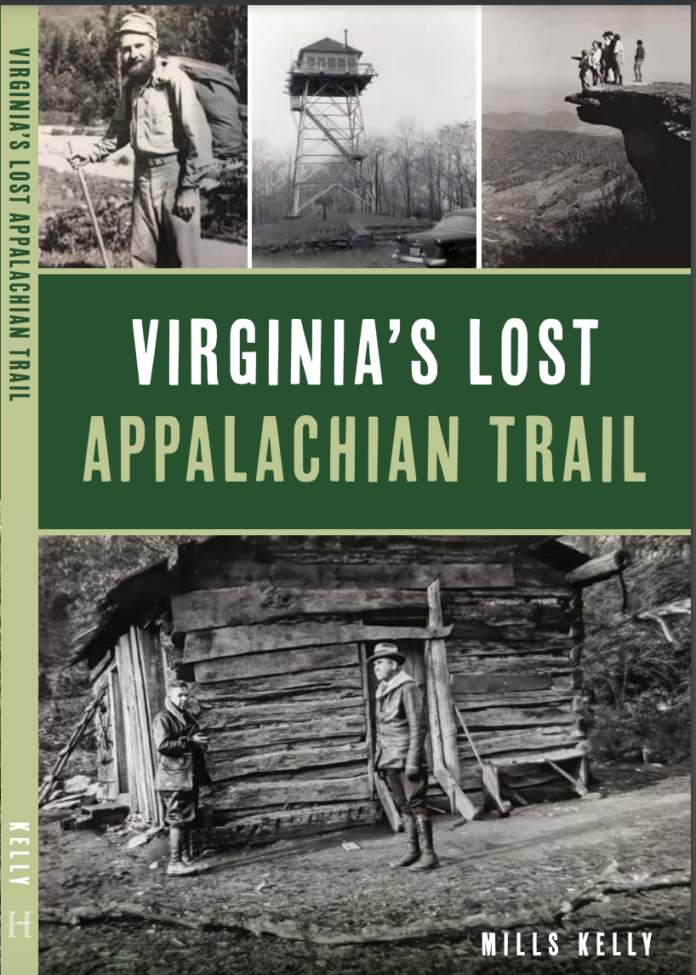For more than two decades, hikers on the Appalachian Trail in Virginia walked through some of the most beautiful landscapes of the southern Appalachian Mountains. On Saturday, August 19 at 11 am, author Mills Kelly will describe the changes that occurred in 1952, when the Appalachian Trail Conference moved 300 miles of the trail more than 50 miles to the west. The presentation is free and open to the public. After the talk, Kelly will sell and sign copies of his latest book, Virginia’s Lost Appalachian Trail.
Kelly describes this change as the single largest re-routing of the AT in the trail’s long history. Lost in that move were opportunities for hikers to scramble over the Pinnacles of Dan, to sit on Fisher’s Peak and gaze out over the North Carolina Piedmont, or to cross the New River on a flat-bottomed boat called Redbud for a nickel.
In this, his latest book, historian and lifelong AT section hiker Mills Kelly tells the story of a part of the history of the Appalachian Trail that is all but forgotten by hikers, but not by the residents of the southwestern Virginia counties that the trail used to cross. Virginia’s Lost Appalachian Trail is thus a history of the AT and a story of the power and persistence of historical memory in rural communities once traversed by the Appalachian Trail.
Mills Kelly is a professor of history at George Mason University in Fairfax, Virginia, where he is also the Director of the award-winning Roy Rosenzweig Center for History and New Media. A lifelong hiker on the Appalachian Trail, Mills is the host of “The Green Tunnel Podcast” featuring the history of the Appalachian Trail, and the author of Virginia’s Lost Appalachian Trail (The History Press, 2023).
He has won numerous state, national, and international awards for his teaching and his research on teaching and learning, most recently the Gutenberg Teaching Award from the University of Mainz (Germany). Mills has been a volunteer on the Appalachian Trail for many years and currently is the maintainer of the Manassas Gap shelter in Linden, Virginia, one of the most historic shelters on the entire trail.

